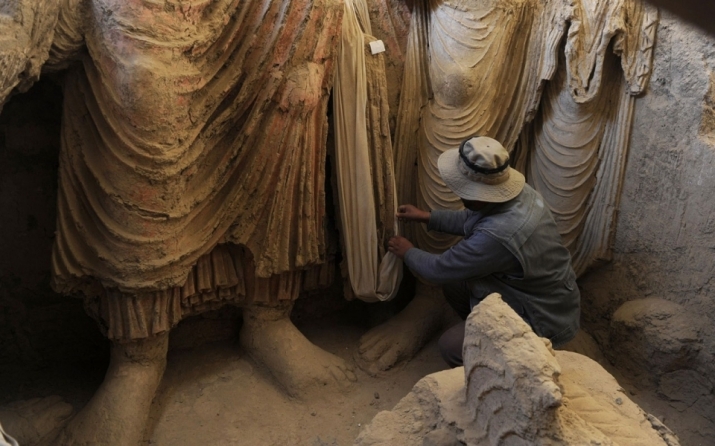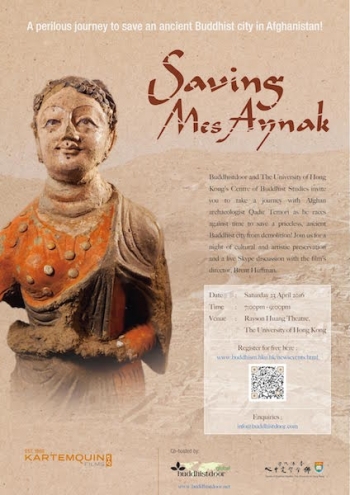Details
Date: Saturday 23 April 2016
Time: 7.00 p.m.—9.00 p.m.
Location: Rayson Huang Theatre, The University of Hong Kong, Pokfulam, Hong Kong
Registration: Free booking with HKU here
See more
Saving Mes Aynak
Awards and Distinctions
Ticketing for Hong Kong screening of Saving Mes Aynak
NEWS
Saving Mes Aynak Hong Kong Film Screening on Saturday 23 April
 From america.aljazeera.com
From america.aljazeera.comBuddhistdoor Global and The University of Hong Kong’s (HKU) Centre of Buddhist Studies (CBS) will co-host a film screening of director Brent Huffman’s award-winning documentary, Saving Mes Aynak, at HKU’s Rayson Huang Theatre on Saturday 23 April from 7.00 p.m. to 9.00 p.m. The screening will also feature a live Q&A by Skype with the director.
Saving Mes Aynak has won various awards, including the Abu Rayhan Biruni Award at the Ahvaz International Science Film Festival, Iran and Best Film at The Archaeology Channel International Film & Video Festival.
The film screening is open to the public and free of charge.
Please register through the HKU portal here.
Saving Mes Aynak centers on Afghan archaeologist Qadir Temori and his project to save and preserve the 5,000-year-old archaeological site, Mes Aynak. The ruins cover a vast expanse of land around 25 miles to the southeast of Kabul, only 10 per cent of which has been excavated. Aside from evidence of Buddhist settlement since the Kushan Gandhara period (roughly contemporary with the Roman Empire and Western Han dynasty), evidence points to civilizations flourishing in the area as far back as the 3rd century BCE. Other fascinating finds include hints of an ancient monastic cult that revered Siddhartha Gautama before he was enlightened and manuscripts mentioning the presence of Alexander the Great’s troops.
Mes Aynak also happens to sit on top of a vast reserve of copper (its name means “little source of copper” in Pashto)—six million tons—and in 2007, a 30-year lease was granted to a Chinese mining company called China Metallurgical Group for US$3 billion, the largest foreign investment and private business venture in Afghanistan by any country. However, various factors, including a decline in copper prices, have led to repeated delays in the extraction (originally scheduled for January 2013), which would mean the complete destruction of the site.
With the Afghan government unlikely to reverse the plan, minimal archaeological excavation has been underway since 2012 to save as many artifacts as possible. Nevertheless, these rescue efforts have been plagued by threats from the Taliban and the carelessness of a number of Afghan excavators with no artistic or spiritual appreciation of the Buddhist artifacts or structures.
 From Buddhistdoor Global
From Buddhistdoor Global













